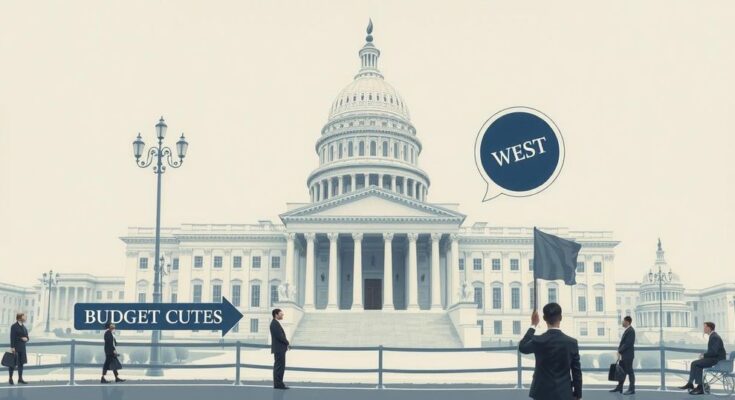In a tense Senate hearing, the White House’s controversial budget cuts faced significant pushback from Republican lawmakers, who voiced concerns over the implications for vital programs.
White House Budget Proposal Faces Significant Opposition
The latest budget proposal from the White House has stirred up quite a bit of chatter, especially in the Senate. On Wednesday, Russell Vought, the Director of the Office of Management and Budget, stood his ground, defending the Trump administration’s plan to enact sweeping spending cuts. As these cuts have come to be known, referred to on Capitol Hill as rescissions, aim to retract about $9.4 billion in previously allocated government funds. This package, already approved by the House earlier this month, is now awaiting deliberation from the Senate.
Senators Question Cuts to Critical Initiatives
During a heated hearing in front of the Senate Appropriations Committee, several Republican senators took issue with the cuts that the Trump administration is pushing for. One particular area of concern was the proposed cuts to PEPFAR, the HIV and AIDS initiative established two decades ago under President George W. Bush. With such a program credited with saving millions of lives, cutting funds here seemed particularly sensitive, and questions started to fly regarding the administration’s intentions.
Bipartisan Concerns Over Health Program Cuts
Senator Susan Collins from Maine, who chairs the committee, made it a point to flag that PEPFAR is not just a program but a bipartisan priority for Congress. She didn’t mince words when she stated that slicing away at funds that prevent the spread of diseases could be seen as “extraordinarily ill-advised and short-sighted.” Vought, however, stood firm, assuring that funding for lifesaving programs would remain untouched. He argued that many foreign aid initiatives disguise dubious activities behind benevolent names, which don’t align with American priorities.
Public Broadcasting Funding Under Fire
Additionally, both Collins and South Dakota Senator Mike Rounds pressed Vought for reassurances about cuts to public broadcasting, especially concerning rural stations that often play a critical role in delivering emergency communications and local interest programming. The proposed elimination of funding for the Corporation for Public Broadcasting, while representing a tiny slice of the federal budget, raises significant questions. NPR and PBS, two major players in public broadcasting, rely on federal support, and senators are wary of the implications cuts could present for local communities.
Concerns Over Soft Power and Global Stability
Senate Minority Leader Mitch McConnell echoed the sentiment that while reforms in how the US manages international aid are necessary, the process undertaken by the administration thus far has been chaotic. McConnell underscored the need for what he called “soft power,” explaining how responsible investments in global initiatives help prevent conflicts and safeguard American interests on the world stage. His message was clear: the administration may have good intentions, but the execution feels off, leaving openings for adversaries like China to exploit.
Future Implications of Proposed Spending Cuts
In wrapping up the discussion, the overarching sentiment among the Senate was clear—while the aim of cutting what they view as unnecessary spending is commendable, the manner in which these proposals have rolled out raises critical concerns. Many Senators remain anxious about potential impacts on health programs, especially those saving lives, and the possible repercussions for public broadcasting essential to rural citizens. As the Senate prepares to vote, all eyes will be watching closely on how this unfolds.
As the Senate prepares to deliberate on the White House’s funding cut proposals, the pushback from Republican senators underscores deep concerns about cuts to crucial programmes such as PEPFAR and public broadcasting. The mix of a chaotic rollout along with the need for improved strategy in foreign expenditures raises essential questions about the administration’s approach moving forward. Only time will tell how these cuts will pan out and what impacts they may have on vulnerable communities.




